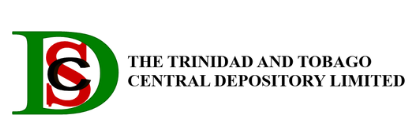The Stock Exchange
The TTSE was formally opened on October 26th, 1981 with 37 listed securities, becoming the second Stock Exchange in the CARICOM region after Jamaica.
The TTSE was established under the provisions of the Securities Industry Act 1981, which was later repealed and replaced by the Securities Industry Act 1995, and thereafter by the Securities Act, Chap. 83:02.
The Stock Exchange is the nation’s centralized market place for the buying and selling of shares or stocks and other securities. In addition to increasing the investment options available to individuals, it also provides a mechanism through which companies can raise capital for expansion purposes by issuing stocks and bonds.
Currently the TTSE is owned equally by companies listed with the Exchange and the member firms of the Exchange.
A company listed on the TTSE can raise capital via an Initial Public Offering (IPO).A listed company can raise additional capital via Rights Issues.
Shares can be used to fund acquisitions of other companies.
Shares can be used as a performance incentive for employees.
Investors have the opportunity to own a part of the some of the largest and most profitable companies in the country and in the region.
Investors can earn extra income from dividends.
Increasing share prices increase investors’ wealth.
Shares offer investors some protection against inflation.
Shares can be used as collateral to obtain loans from financial institutions.
The TTSE fosters economic development by providing companies with access to capital.
The TTSE encourages entrepreneurial spirit.
The TTSE facilitates transparency and efficiency in the allocation of resources.
Stocks and Bonds
Common Stock is a security representing a unit of ownership in a company. It gives the stockholder (shareholder) the right to vote at the company’s General Meetings and a proportionate claim on any dividends declared, after preference shareholders. As owners of the company, common shareholders assume the primary risk if business is poor, realize greater returns in the event of success and elect the Board of Directors that controls the company. Ordinary shareholders have a residual right to assets in the event of dissolution and a pre-emptive right to maintain their proportional ownership in a company.
Preferred Stock is a security representing an ownership interest in a company. Preferred stockholders enjoy priority over the common stockholders with respect to the payment of dividends and the distribution of assets in the event of dissolution of the company. The dividends paid to preference shareholders are fixed and may be cumulative. Preferred stockholders generally do not have a right to vote at the company’s General Meetings.
Bonds are debt instruments issued by a government or a company which represent a fixed sum of money that was borrowed (principal). The issuer (borrower) promises to pay the holder (lender), a specified amount of interest (usually stated as a percentage) over a specified period of time, and to repay the principal at maturity.
(1) Stocks represent ownership in a company while bonds represent a debt or loan to the company. A bondholder is a creditor who has a claim against the company in the event of dissolution of the company ahead of all classes of shareholders, equal to the value of the bond.
(2) As a part owner of a company a shareholder may receive periodic dividend payments from the company depending on its performance. A bond holder is entitled to receive periodic interest payments at an interest rate that is declared at the time the bond is issued.
Investing In The Stock Market
Once you determine which shares you wish to buy or sell, you can visit any of the six (6) stockbroking firms. If you wish to purchase shares but are unsure about which one is best suited to your investment objectives, the broker can advise you accordingly but the final decision depends on you.
Before a broker can buy or sell shares on your behalf, you must open an account with the broker and an account with the Trinidad & Tobago Central Depository (TTCD) by completing and signing a client agreement in the presence of a witness. In opening an account, the broker may require certain information such as your name, address, age, investment objectives, National ID number etc.
The generally accepted method of payment for trades executed is by cash or cheque and should be made by the settlement date, which is currently three business days after the date on which the transaction was executed.
If you wish to sell shares and have the share certificates in your possession, you will have to deposit these shares into your TTCD account before they can be sold. Once the registrar of the company confirms that the shares are valid, the broker will then be able to place an order to have the shares sold. This process usually takes three (3) business days.
When placing an order to buy or sell shares the following types of orders can be used:
- Market Order: This order allows the broker to buy or sell shares at the best possible price in the market.
- Limit Order: This order restricts the purchase or sale of shares to the price specified by the investor.
After the broker has purchased or sold shares on your behalf you will receive a contract note which is a legal document which specifies the volume and value of shares bought or sold, the transaction price, the Stock Exchange transaction charge and the commission payable to the broker. In the case of a purchase, the contract note is your proof of legal ownership until the settlement date.
It is important, to remember that the Stock Exchange does not own any of the shares that are traded nor does it buy or sell any of the shares that are made available on the market. These shares are owned either by organizations or members of the public.
Many small investors who would like to buy shares don’t do so simply because they do not know how to go about it. Many people have the false idea that investing in the stock market is only for wealthy individuals.
Only the shares of companies registered with the Securities and Exchange Commission and listed with the Stock Exchange, can be bought or sold on the Exchange. This means that a company wishing to make its stocks available for trading must meet the Listing Requirements of the Exchange, which are a set of pre-determined standards.
Presently, there are thirty two (32) companies listed on the First Tier Market of the Stock Exchange, one (1) company on the Second Tier Market and four (4) on the Mutual Fund Market. These companies are classified into the following sectors, based on the nature their business operations.
- Banking
- Conglomerates
- Property
- Manufacturing I
- Manufacturing II
- Trading
- Non-Banking Finance
- Non-Sector Companies
Currently there are 40 securities listed on the Exchange which differs from the number of listed companies because some companies have both ordinary and preferred shares listed.
Trading takes place on all business days, excluding public holidays and Carnival Monday and Tuesday from 9:30am – 12:00pm and is open for viewing by the general public. On these days, the stockbrokers or traders enter orders via the electronic trading system from their respective offices to buy or sell stocks on behalf of their clients.
Investors in the local stock market have the opportunity to own shares in some of the largest and most profitable companies in the country and in the region. Shares provide investors with the opportunity to earn extra income from dividends, which are paid out of the profits of a company and an opportunity for wealth accumulation and appreciation. Shares can also be used as collateral to obtain loans from financial institutions.
The Exchange does not fix the price at which a stock may be bought or sold. The price is determined by the demand and supply for the security.
Between 8:00am and 9:30am on every trading day, there is a pre-open session during which brokers enter orders into the trading system, but they are not immediately matched. The pre open market state determines the opening price for each security which may be different from the previous day’s closing due to news about the company released overnight, changing economic forecasts or because of a trading halt. The trading system determines the total volume available on both the buy and sell side of the market at each price level to arrive at an opening price.
Once the market opens at 9.30 a.m. trades are executed on a continuous basis which means that any security can trade at any time during the trading session. All orders entered are queued by price and then by time using the FIFO methodology. Trades are also executed using these criteria.
The closing price of a security listed on the Exchange is the Volume Weighted Average Price (VWAP). VWAP is calculated as the total value of the trades executed for a security divided by the total volume of shares traded.
An example of the VWAP Calculation is presented below:
VWAP Closing Price Calculation | |||
Trades | VWAP Closing Price | ||
First | Second | Third | |
5,000@ $15.00 | 1,000@$15.75 | 500@16.00 | $15.19 ($98,750/6,500) |
If a security does not trade in any designated trading session, the closing price of that security will be the same as the closing price of the previous day.
The Daily Trading Summary is published in the daily newspapers and can also be accessed on the website of the Stock Exchange. Interested individuals can also subscribe to receive the trading summaries via email at the end of every trading day.
Go directly to the Company Registrar of the listed company. Usually you will be required to sign a letter of indemnity and have information on your lost certificates published in a daily newspaper for one day. Upon completion of this exercise, a new certificate will be issued.
The relationship between stockbroker and client should be one of confidence and goodwill. As frequently happens, the stockbroker will have relatively varying amounts of his customers’ cash and/or stocks. At other times, the client may be in debt to his broker. Custom, law and good business practice regard certain standards as fundamental to a satisfactory relationship between client and stockbroker. It is important to note that before dealing with any firm, an investor must ensure that it is a member firm of the Exchange and has a duly registered and licensed stockbroker.
As a new investor, you may not know much about the financial strength, business practices and technical competence of a stockbroking firm. The Exchange however, maintains constant surveillance over member firms to ensure compliance with operational procedures and capital rules.
While the final decision about which companies to invest in is usually made by the investor the broker should nevertheless offer sound investment advice based on a careful assessment of the client’s financial objectives and develop an investment portfolio based on the level of risk that the client is willing to undertake. The stockbroker should do proper research, and should not make any false statements or misrepresentations regarding the value of a particular stock or its operations. The customer must remember however, that stockbrokers can make errors in judgment, and may not always interpret the market correctly.
Submit the complaint in writing to the Chief Executive Officer of the Trinidad and Tobago Stock Exchange Limited.
Shares or stocks should be selected through the process of investment analysis and portfolio management, functions which can be performed by your stockbroker. The process of investment analysis takes into consideration the operational and financial policies of a company, its operations in the context of the larger economy, its sources of growth and the quality of its management team. When this is completed, the stockbroker selects an investment portfolio or a mix of different stocks, which best fits your risk tolerance and investment objectives.
Some of the tools used in investment analysis are:
a) Balance Sheet
b) Income Statement
c) Retained Earnings Statement
d) Statement of Changes in Financial Position
The Balance Sheet shows what a company owns, what it owes and what it is worth; in other words, its financial position as at a fixed date at the close of a financial period.
The Income Statement shows how profitable a company was over a financial period by summarizing and/or detailing revenue and expenditure (income and expenses).
The Retained Earnings Statement is part of the Balance Sheet, though it is not unusual to find it separate; it provides a record of the profits that have been kept in the business year after year.
A Statement of Changes in Financial Position tells you where the money came from (the source) and how it was spent (the application, during a financial period).
Some useful ratios are:
Earnings per Share (EPS)
This is the revenue earned during a year divided by the number of outstanding ordinary shares. It should be noted that when a company has preferred stock, the dividend due to preferred shareholders is deducted first. For example, assume a company has Net Income of $1,500,000 and outstanding share capital of 1,000,000 shares. The earnings per share is calculated as follows:
Net Income= $1,500,000
Dividends on Preferred stock= $480,000
Applicable to Ordinary stock= $1,020,000
EPS = $1,020,000
1,000,000
= $1.02
Price Earnings Ratio (P/E)
This is the share price of an ordinary share divided by the earnings per share. The P/E is sometimes referred to as the “multiple”, because it shows how much investors are willing to pay per dollar of earnings. P/E ratios are useful when compared to the P/E ratios of other companies in the same industry, the overall market or the company’s historical P/E ratio. The P/E ratio is calculated as follows:
Share price per ordinary share = $10.00
Earnings per share = $2.00
Price Earnings Ratio (P/E) = $10.00
$2.00
= $5.00
Dividend Yield
This is the annual dividend payments divided by the share price and is usually expressed as a percentage. The dividend yield is calculated as follows:
Annual Dividends = $0.50
Share price = $5.00
Dividend Yield = $0.50
$5.00
= 0.10 or 10%
A Brokerage Firm is a financial institution that facilitates the buying and selling of securities between a buyer and a seller and provides investment advice. A Stockbroker, also known as a broker/trader, is a person licensed to buy and sell securities on a stock exchange on behalf of their clients. An investor must contact a Brokerage Firm in order to open a Brokerage Account to begin trading.
The Trinidad and Tobago Central Depository
The settlement of transactions through the delivery of a security certificate has the potential for errors. For example, a certificate may be invalid, damaged, destroyed or lost. Experience has shown that when activity on the Exchange increases, these problems also increase.
The TTCD allows investors to deposit their shares represented by physical certificates through a stockbroker for safe keeping. The deposited securities are recorded in an account opened by the stockbroker in the name of the investor. These shares are registered in the name of the TTCD and held on behalf of investors, so the investors maintain all their entitlements. Investors will receive periodic statements from their stockbroker and quarterly statements from the TTCD which reflect the shares owned as well as any transactions such as purchases, sales, deposits and pledges executed during the quarter.
Apart from safekeeping, the depositing of certificates at the TTCD improves the efficiency of the settlement of transactions. When a stockbroker sells shares on the Exchange, the TTCD will record the sale by reducing the balance of shares held in the seller’s account by the number of shares sold and by simultaneously increasing the balance of shares held in the buyer’s account by the same amount. The implementation of the TTCD will allow for the reduction in the settlement cycle for transactions executed on the Exchange.
This refers to the period of time specified for the settlement of transactions between member firms. When the Exchange began operations in October 1981 the settlement cycle was T+10 which meant that all transactions were settled 10 business days after the trade date. The settlement period was initially reduced from T+10 to T+5 and is currently T+2. On settlement day, legal ownership is automatically transferred from the seller to the buyer.
After the worldwide capital market collapsed in 1987, regulators worldwide decided that, there was need for stronger measures to reduce risk and promote safety and soundness in the securities market. As a result, the Group of Thirty (30) nations spearheaded a movement to standardize operating procedures and regimes of clearing and settlement systems in capital markets through the establishment of Central Securities Depositories. Accordingly, the Group stated that an effective way to reduce risk was to reduce the settlement period for securities’ transactions. It is imperative that the TTCD meet international standards, which would motivate foreign shareholders to participate in our local market, and at the same time ensure that we do everything to improve safety. We therefore support the international standard of T+2 for settlement of trades.
Efficiency Gains
The use of the automated book entry system for the transfer of securities eliminates manual errors and allows for the reduction in the settlement cycle from T+10 to T+2.
Safe-keeping of Certificates
Certificates kept at home or elsewhere are always in danger of being defaced, misplaced, lost, or destroyed. If an investor experiences this misfortune, a duplicate certificate would have to be requested from the company’s registrar or transfer agent which takes approximately 3-4 weeks. However, all securities which are deposited with the TTCD are kept in the vaults of the Central Bank of Trinidad and Tobago.
Convenience in disposing of securities
If an investor wishes to sell part or all their securities deposited at the TTCD, there will be no need for the physical delivery of certificates. The investor can simply place an order with their stockbroker for execution.
Attraction of foreign investment
Foreign institutional investors were always interested in investing in our market, but were reluctant to do so because of the absence of a Central Depository in Trinidad and Tobago. Now we can expect foreign investors to invest in our market, which will certainly help the Exchange and the economy.
Deposits
Certificates deposited via a stockbroker are recorded as an electronic entry in a TTCD account.
Withdrawals
Shares are removed from the TTCD and a certificate is issued by the registrar of the listed Company.
Inter/Intra Member Movements
Movement of shares from one account to another with the same stockbroker or from an account with one stockbroker to an account with another stockbroker.
Pledges
The offering of shares as collateral via the TTCD to financial institutions for credit/loan facilities.
Cross Border transfers
Shares can be transferred between the Depositories in Trinidad, Jamaica, Barbados or the Eastern Caribbean for trading or safe-keeping purposes.
Corporate Actions
Entitlements for shares lodged with the TTCD are distributed to investors. e.g. Dividends, Bonus and Rights Issues.
To open an account with the TTCD an investor will need two valid forms of identification and must sign a client agreement form with the stockbroker.
An order can only be executed if the shares are available in the settlement system. Shares will not be available for trading if they are pledged.
The TTCD Registration Department was officially launched in December 2006 and offers transfer agent and registrar services. The TTCD maintains the register of shareholders, processes stock transfers and addresses inquiries from shareholders, brokers and clearing agents.
The TTCD is a computerized book entry system where physical certificates are lodged via a stockbroker for sale or safekeeping, whereas the TTCD Registrar holds the inventory of physical certificates and manages dividend payments, name changes, address updates and nominal transfers for shareholders and beneficiaries who hold physical certificates.
Currently the TTCD acts as Registrar for:
Agostini’s Limited
Angostura Holdings Limited
ANSA McAL Limited
ANSA Merchant Bank Limited
CLICO Investment Fund
Calypso Macro Index Fund
First Citizens Bank Limited
Guardian Holdings Limited
Guardian Media Limited
Massy Holdings Ltd.
National Enterprises Limited
National Flour Mills Limited
One Caribbean Media Limited
Point Lisas Industrial Port Development
Corporation Limited
Prestige Holdings Limited
Republic Financial Holdings Limited
Scotiabank of Trinidad and Tobago
Trinidad and Tobago NGL Limited
Trinidad Cement Limited
The West Indian Tobacco Company Limited
Unilever Caribbean Limited
Statements are generated once every quarter:
Should you require an additional statement you can visit our office with a form of identification and one will be generated at a cost of $3.00 per sheet. Statements show activity in the shareholder’s account held under a stockbroker.
You may now access your statements online, via The TTCD’s eStatement Platform. Visit https://ttcdestat.stockex.co.
For more information about the TTCD you can call any stockbroking firm or visit us at:
The Trinidad and Tobago Central Depository Limited
10th Floor
Nicholas Tower
63-65 Independence Square
Port of Spain
Telephone: (868) 625-5107-9 / (868) 625-7148
Fax: (868) 623-0089
What is Online Trading
Online Trading refers to the buying and selling of securities via the Internet through an Online Trading Platform.
Online Trading has multiple benefits:
- Manage all your trading accounts on one platform
- View real-time market activity; for example, stock process, trade volume and market depth
- Manage your funds – add funds for trading to your trading account
- Manage your stock portfolio – you can place orders at any time of the day which will then beexecuted during Market Hours (Monday to Friday: 9:30am – 12pm); monitor your transactions and check your stock performances and access your trading statements at your convenience
For online trading, a Limit Order is used. This is where the investor specifies the price at which he or she is willing to buy or sell. Limit orders can help protect customers from rapid price changes when markets are moving fast. However, there is the risk that the limit order will not always be executed.
With any investment, there is risk. There is risk of loss associated with investing in securities regardless of the method used. New investors need to clearly define their investment goals, whilst understanding the principles of investing and their personal risk tolerance, before venturing into the stock market. It is advisable that you contact a final advisor or a Stockbroker so that you are fully equipped with all the information required before you make a trade. This is to protect you and to prevent any unusual fluctuations in the market.
Yes, The TTSE has launched its online trading platform, called TOP (Trading Online Platform). New and existing investors may contact a Brokerage Firm for more details, and visit TOP at www.top.stockex.co.tt.
Mutual Funds
View latest activity
USD
View latest activity








